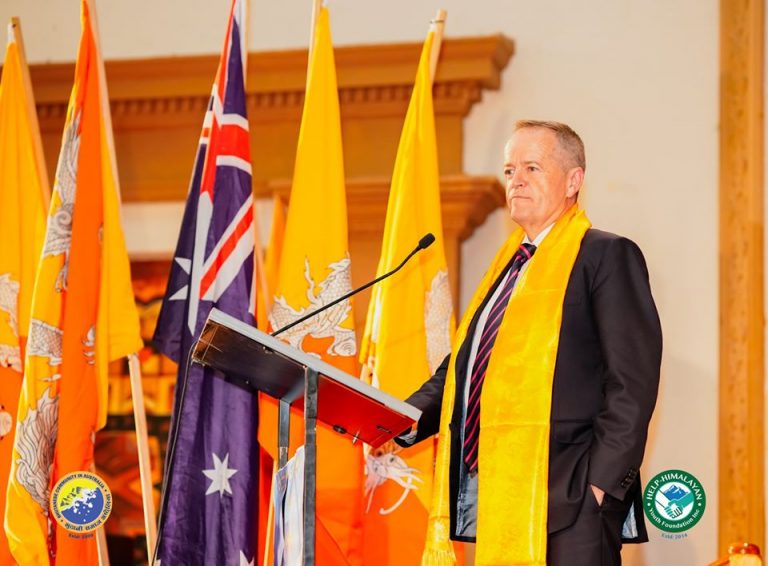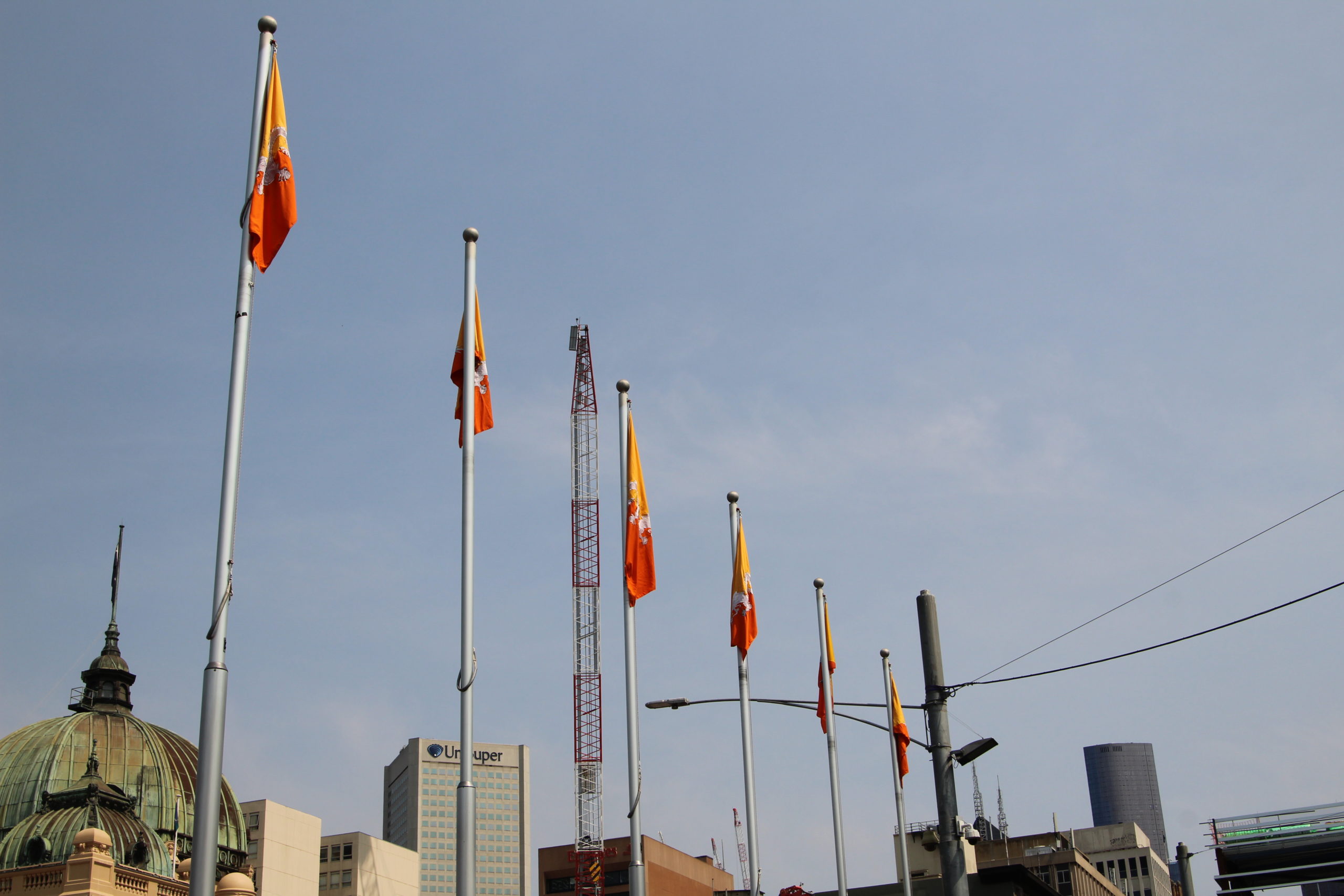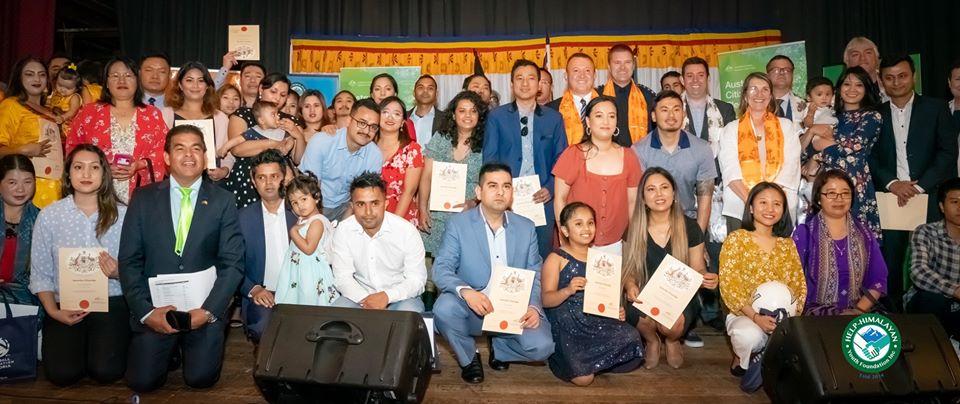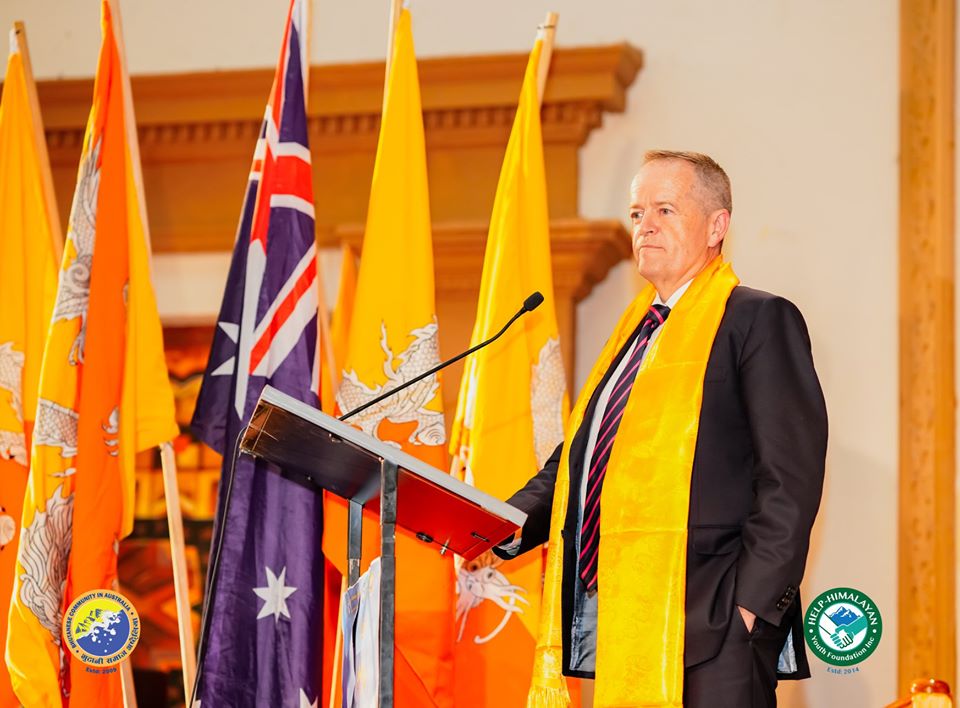
Melbourne, Australia: In 2001, 63 Australians of Bhutanese origin called Australia their home. Over the two decades, the number has significantly grown – thanks to a Humanitarian Program, a part of a coordinated international strategy to resettle 5,000 Bhutanese refugees in the nation. The community has grown to a strong and vibrant population – an estimated 6,000 people call Australia their home today.
The community’s population has also inspired several members to observe their national day – on 17th Dec, the Bhutanese national flag was unfurled in Federation Square, Melbourne, and on 18th Dec, a gala dinner was hosted in Estonia House, Melbourne. Both programs were jointly organized by Help-Himalayan Youth Foundation and the Bhutanese Community in Australia. They were in attendance of community members and other dignitaries.

During both occasions, due respect was accorded to Gongsar Ugyen Wangchuck, the first Druk Gyalpo of Bhutan, who in 1907 unified the nation.
Earlier during the day of the 18th, a ‘citizenship ceremony’ was also hosted – 15 Bhutanese, 17 Nepalese, and 12 people from Myanmar were presented with their Australian citizenship at Estonia House. Parshuram Luitel of the organizing committee thanked the Australian government for the trust and opportunity to host the citizenship program.

Bill Shorten MP (Shadow Minister for the National Disability Insurance Scheme and Shadow Minister for Government Services) perhaps inspired by the earlier events of the day, ‘welcomed the new citizens of Australia’. His words, a celebration of the multiculturalism of Australia, celebrated the values of being a true Australian.

“Immigration is a part of the great strength of the nation.” He remarked upon their courageous decision to move to a completely new place. “All those people who made the big decision to become citizens of the country today, it takes a lot of courage to be leave the villages you grew up for a completely new place”, he said.
He also dismissed the narrative of ‘Australia being full’ and said a true Australian is made by the virtue of the person. “What makes a good Australian? Not money, gender, religion, or whom you love”, he answered himself, saying a true Australian ‘respects the law, is a good neighbor, and raises his/her family well”
“What makes a good Australian is not where you come from, it’s what you have in your heart. Bhutanese culture is strong, it is formidable and adds an exciting element to the Australian identity”, he said in his concluding lines.





